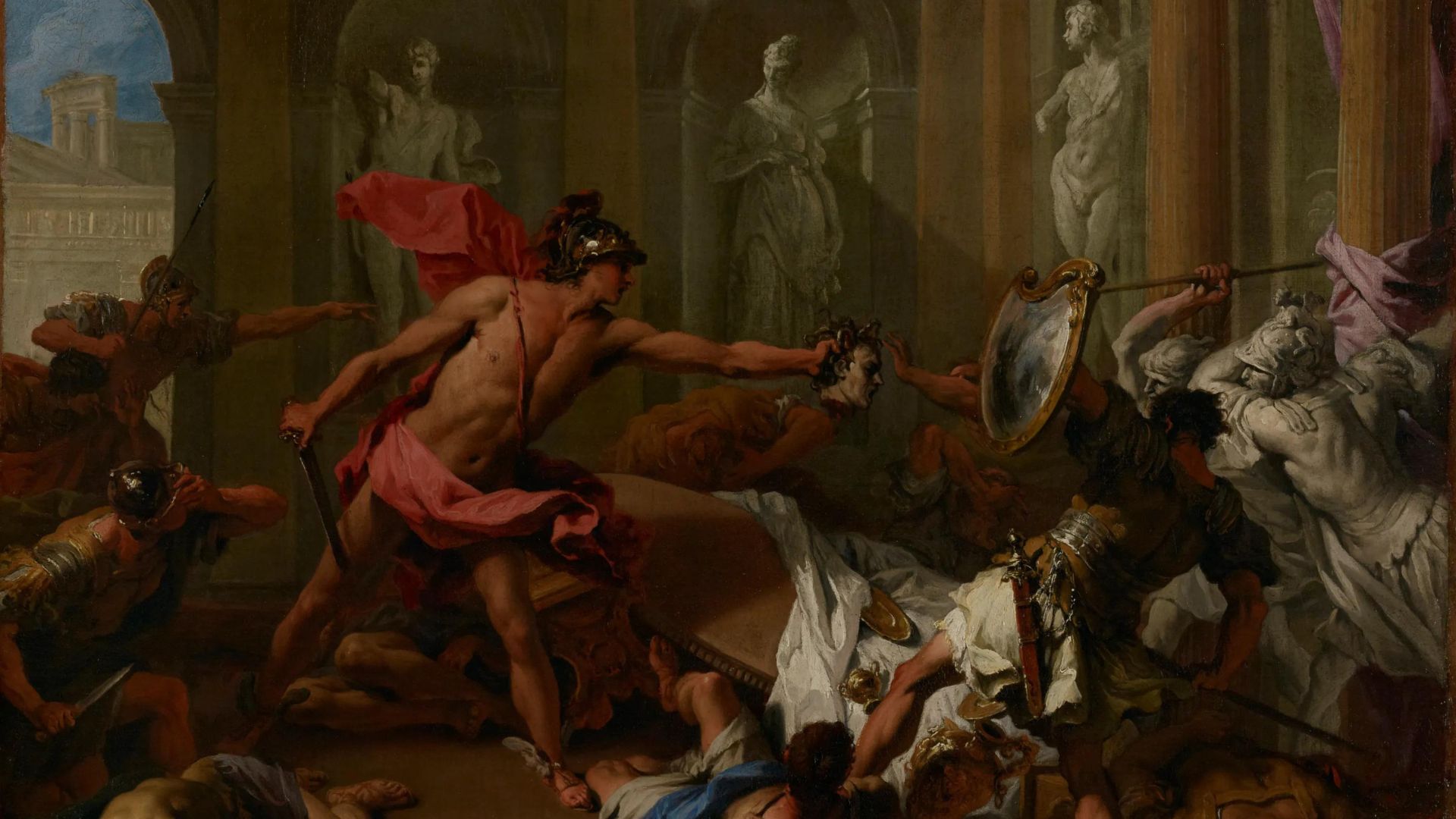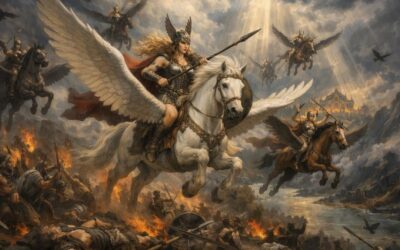The image of Medusa, her hair a tangle of hissing snakes, capable of turning onlookers to stone, is one of the most enduring from Greek mythology. But, who was the hero brave enough, or maybe foolish enough, to face her? That was Perseus, son of Zeus, whose tale is an action-packed adventure filled with danger, divine assistance, and a clash against terrifying odds.
Who was Medusa?
Before she was the monster, Medusa was a beautiful priestess serving in Athena’s temple. Depending on which version of the myth you follow, her monstrous transformation comes either as punishment from Athena for breaking a vow or at Poseidon’s cruel hands. Either way, the Gorgons, Medusa and her sisters, became deadly creatures dwelling in a remote land.
Perseus and the Prophecy
A prophecy burdened Perseus – he was fated to kill his grandfather, Acrisius. To avoid this, Acrisius locked Perseus and his mother away, leading Zeus to intervene. This sets Perseus on a perilous quest: to bring back the head of Medusa, a gift sought by a manipulative king hoping to force Perseus’ mother into marriage.
Gifts Fit for a Hero
This wasn’t your average ‘grab a sword and go’ quest. Gods themselves stepped in to help Perseus:
- Athena: Gifted him a reflective shield to avoid Medusa’s petrifying gaze.
- Hermes: Loaned his winged sandals, granting the hero the speed of flight.
- Nymphs: Bestowed a magical sack to safely carry Medusa’s head
- Hades: Some versions credit the god of the Underworld with a helm of invisibility.
The Clash and the Consequences
Using these gifts, Perseus locates Medusa’s lair. Watching her in the shield’s reflection, he slays the Gorgon, claiming her head – a weapon even in death. His quest isn’t without ramifications – the winged horse Pegasus was born from Medusa’s spilled blood, and ultimately the prophecy is fulfilled on his journey home.
More Than Just a Monster Story
This myth carries deep meaning:
- Courage and Resourcefulness: Perseus combines bravery with using his tools intelligently. He’s not simply ‘strong.’
- Power Corrupts: Medusa warns of beauty becoming monstrous, mirroring issues of vanity and unchecked power.
- Divine Intervention: Gods both aid and complicate Perseus’ journey, a common theme in mythology.
Action Point
While you likely won’t battle mythical monsters, Perseus’ story still resonates. Can you identify challenges in your own life where resourceful approaches would benefit more than brute force? Is there support offered that you haven’t considered? Reflect on the ways courage and ingenuity still serve us in a modern world.
Why Should You Care?
- The Power of Story: This myth has endured for centuries for a reason. It’s got thrilling action, moral ambiguity, and explores timeless themes of power and heroism.
- Understanding Symbols: Many figures in classical myths become symbols we still use. Medusa’s a shorthand for something dangerously deceptive or monstrous.
- Human Experience: Despite gods and monsters, the core of this story is a flawed hero striving for a challenging goal. We can connect with that feeling even in a completely different world.
Key Takeaways
- Medusa, while iconic, wasn’t always a monster. Her transformation speaks to the complexity of power, beauty, and cruelty.
- Perseus’ victory isn’t simply about strength, but utilizing strategy and the help of others (divine or otherwise).
- Prophecy in Greek myth is tricky; heroes rarely fully escape their destinies, despite trying.
- This tale exemplifies that actions have consequences, even when motivations are good.
- Myths can be both thrilling entertainment and hold deeper reflections on life.
Keywords & Definitions
- Hero: Central figure in a story displaying bravery, virtue, and overcoming challenges.
- Quest: A long, significant journey, often filled with dangers or challenges.
- Greek Mythology: Body of myths/legends from ancient Greece, centered around gods and heroes.
- Gorgon: Terrifying female creature in Greek mythology (Medusa was the most famous) with snakes for hair and petrifying gaze.
- Divine Intervention: When gods directly intervene in human affairs or a mythical story.
- Symbolism: Using an object or figure to represent an idea (ex: Medusa = dangerous beauty).
- Prophecy: Prediction of the future, often a key driving force in mythic narratives.
- Transformation: A significant change in form or nature, often explored in myths.
- Moral Ambiguity: When there’s not a simple “good vs. evil” scenario, raising ethical questions.
- Flawed Hero: A protagonist who, despite admirable traits, still possesses significant weaknesses.
Frequently Asked Questions
- Are there multiple versions of this myth? Yes! Greek myths were retold often, meaning details vary. Medusa may choose her monstrous form or be punished unjustly depending on the source.
- What happened to Perseus after? His story expands; he saves Andromeda (who becomes his wife), confronts betrayers, and fulfills the prophecy despite his best efforts.
- Why is Medusa’s face often used in art? It evokes fascination and repulsion; a protective symbol even while depicting monstrosity.
Myth Buster
- Myth: Perseus was an uncomplicated, perfect hero.
- Reality: He’s impulsive, sometimes prideful, and even tricked into the quest. Victories aren’t without moral cost.
Let’s Talk!
- Do you sympathize with Medusa, or is she pure evil? Why?
- How does knowing Perseus was divinely aided change the quest for you? Is it less impressive?
- If you could make a modern story inspired by this myth, what element would be crucial to keeping it engaging?
Let the discussion begin in the comments below!










0 Comments